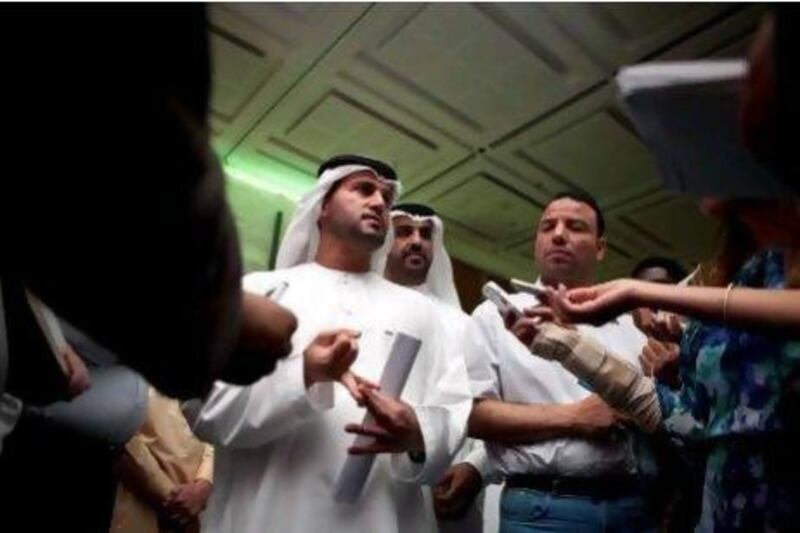The UAE was transformed just a few decades ago by a generation of science students who were determined to become leaders in the global oil and gas industry and help to shape their nation's economic future.
These pioneers were determined to take meaningful roles in their country's critical industry and carve a path for other Emiratis to follow.
They made a lasting contribution as the ranks of the UAE's oil and gas industry are filled with skilled Emirati managers and engineers. And today, their example has inspired a new generation of Emiratis to build the nation's nuclear energy industry.
Launched in December 2009, the UAE's nuclear energy programme is at the centre of efforts to diversify the economy. The UAE Government's aim is to use sustainable energy development as a catalyst to spawn long-term, high-technology industries that will power the country's growth.
The first of four reactors is expected to begin operation in 2017, and the fourth by 2020. The UAE programme is ambitious, but the approach to building a world-class nuclear energy industry and workforce should serve as a model for other nations looking to nuclear energy for the first time.
The UAE's commitments to operational transparency, the highest standards of non-proliferation, safety and security, long-term sustainability and partnerships with the International Atomic Energy Agency and responsible nations form the foundation of a programme other nations should emulate.
The Government is putting its full weight behind the nation's commercial nuclear energy programme. The reactors will provide emissions-free, baseload energy to meet expanding electricity demand and drive the continued high-tech growth of the economy.
The UAE has partnered with leading international experts to guide the development of its programme and to help to build the academic infrastructure to supply the nation's nuclear energy workforce, thus ensuring its becoming a predominantly Emirati one.
The Emirati nuclear energy industry will need about 2,000 highly educated and skilled workers by 2020. The Emirates Nuclear Energy Corporation (Enec), the organisation guiding the development of the programme, is aiming to maintain its Emirati employees at the current level of 60 per cent of its workforce. Forty per cent of Enec's expert workforce is from the global nuclear energy industry. Now Enec has more than 250 Emirati employees in a workforce of 400.
Over the next eight years, the nuclear programme will generate about 950 highly skilled jobs for Emiratis. This workforce will consist of graduates and experienced professionals in nuclear, chemical, mechanical and electrical engineering.
Workforce development efforts are under way. The UAE has initiated a scholarship programme that has sent 170 Emiratis to engineering programmes in the United States, Europe and South Korea to qualify in needed disciplines.
Enec has also enlisted international expertise to help to develop new technical and engineering schools to supply its nuclear workforce. At the Massachusetts Institute of Technology (MIT), we are providing a multiple-week, technically intensive programme for Enec engineers and managers.
The UAE's first class of senior reactor operators is undergoing intensive training designed to meet the American National Standards Institute's requirements for nuclear station managers. The students will acquire the knowledge and skills that will give them the baseline necessary to enter into licensed operator training.
The international nuclear energy industry demands excellence from its employees, and the UAE is on a path to raise the bar for the development of a home-grown workforce.
The Emirati pioneers, who have already joined the nuclear energy workforce, and those soon to join, can be proud of their efforts. They are building brighter futures for themselves and for their nation.
Neil Todreas is the Korea Electric Power Corporation professor of nuclear engineering and professor of mechanical engineering (emeritus) at MIT. Since 1975, he has been the co-director of the MIT nuclear power reactor safety summer course





